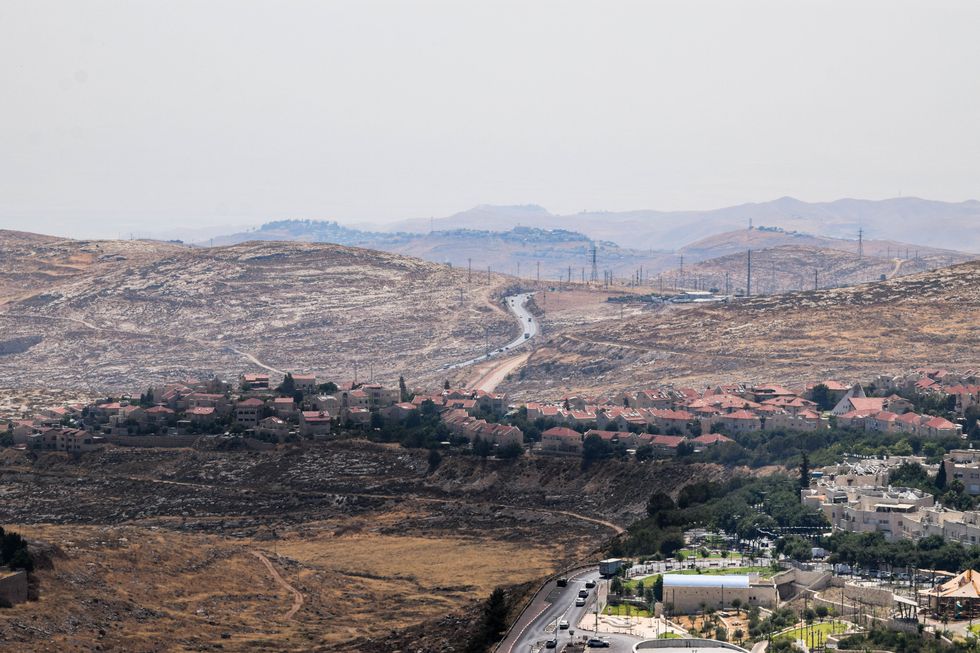We had a pretty heavy first few hours of our morning, but now we are on our way to Shalem College! This place is a big deal because it's the first liberal arts college in Israel.
Since everyone (or most everyone) goes into the IDF right after high school, there isn't really room for liberal arts studies in what is considered the typical timeline of an Israeli young adult. Similar to stereotypical Chinese education paths, Israelis can either go to school to be a doctor, lawyer, or engineer. However, Shalem College students want to explore something more.
At Shalem, there are two majors: the first is Middle Eastern and Islamic Studies, and the second is Philosophy and Jewish Thought. There is a core curriculum that students take in addition to their major requirements; the core curriculum includes general breadth requirements such as Western & Eastern Philosophy and Religion, Jewish Thought, Literature, Art, & Music, History and Social Sciences, and Mathematics and Natural Sciences.
The classes offered within the Middle Eastern and Islamic Studies major are as follows: Intensive Modern Standard Arabic; Major Issues in Islam; The History of the Middle East I: From Muhammad to the Fall of the Abbasids; Arabic Media and Literature; Intensive Modern Persian; The History of the Middle East II: From the Mongol Conquest to the Collapse of the Ottoman Empire; Classical Islamic Texts I: Koran, Hadith, and Fiqh; Classical Islamic Texts II: Sira, Tarikh, and Adab; The Shi'a; Islamic Reformism and Fundamentalism in the Modern Period; Kurds and Other Minorities in the Middle East; Oil and Water: The Economy of the Middle East in the Modern Period; Politics and Ideology in Modern Egypt; The Art of the Khutba: Analyzing Friday Mosque Sermons; Saudi Arabia; The Arab-Israelis Conflict in War and Words; Modern History: Turkey and the Key Players in the Arab World; and Iran: History and Culture.
The classes offered within the Philosophy and Jewish Thought major are these: The Biblical Narrative; Topics in Analytic Philosophy; Epistemology and Metaphysics; Neoplatonic Philosophy from the Ancient World to the Middle Ages; Platonic Dialogues; Topics in Rabbinic Literature and Thought: Interpretation and Meaning; Introduction to Kabbalah; Morality and Ethics; Readings in the Guide for the Perplexed; Competing Theories of Justice; Kant and Hegel; Philosophy of History; Readings in the Zohar; The Hassidic Movement and Its Mitnagdic Opposition; The Legacy of Plato and Aristotle in the Hellenistic World; Political Thought in the Jewish Tradition; Continental Philosophy, Philosophy of Religion, and Political Philosophy; Modern Jewish Thought and the Many Voices of Judaism; Hermeneutics; and the Philosophy of Halacha.
We joined a classroom of 20-25 Shalem College students for lunch and asked them about their studies. Most of the students in that class were Middle East and Islamic Studies majors, and most were secular Jewish Israelis. They dressed differently from the Jewish young adults we saw in and around the Old City; there, everyone was dressed in religious or more traditional, plain garments. Here, the liberal arts students were dressed in an "edgy" style, with ripped jeans and colorful scarves and large earrings. Many even had nose piercings.
Some were parents; after all, they were all at least 21 or 22 years old. Some were born and raised here in Jerusalem, and others were American Jews who made Aliyah to Israel with their families.
There was a distinct accent difference between American Jews and Israelis who grew up here; the students themselves pointed out how we could tell the American English accent from the Israeli-accented English.
I talked to a student named Daniel, who was the father of a two-year old girl. He was studying Middle East and Islamic Studies, and we bonded over our love for the Arabic language. He said that after studying Arabic intensively, he was able to understand more about the Palestinian narrative and way of thinking.
He wanted to study Arabic culture because he believes that understanding one another is the first step to peace. He told me, though, that he didn't think there would be permanent peace in his lifetime; even so, he would still do his part to contribute to it.
He also wanted to know why Americans are so concerned with being politically correct all the time. If there's one thing that all Israelis have in common, it's that they do not care one bit about being politically incorrect. In America, no one wants to say something that's not PC--that's a huge cultural difference between the US and Israel. It's honestly refreshing to hear someone say exactly how they feel about a certain topic without trying to accomodate for the possibility of hurting someone's feelings. If an Israeli doesn't like you, they'll tell you right up front.
It was really cool to see the passion that these students had for understanding other cultures. I will always appreciate the candor in our conversations about cultural differences; though we did not agree on everything, we could still share pita and hummus with each other. In our next section, we will be talking to Dr. Daniel Gordis, a professor at the Shalem Institute.
- Empathizing with the the people of Palestine ›
- Creating Peace in Israel & Palestine ›
- Palestine & Israel on America's Involvement ›
- Conflict in Israel ›









































